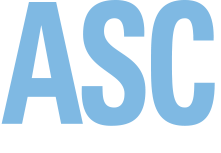It’s been said that a library can take you to worlds you could only otherwise imagine, introduce you to people you would otherwise never have the chance to meet, or spark a new interest or hone a skill.
At the library supported by the Aquatic Sciences Center you can do all that, and more. From the Wisconsin Water Library’s website (waterlibrary.aqua.wisc.edu), you can also pull off the virtual shelf more than 50 years’ worth of groundwater research, sign up for a virtual book club on Indigenous children’s literature and request delivery of a freeze-dried sea lamprey.
The library holds research summaries from the Water Resources Institute’s funded projects. The reference material useful to other researchers is part of a collection that holds 30,000 volumes about water — surface, groundwater, lakes, streams, rivers, oceans, frozen and unfrozen. It was established in 1964 and is currently under the careful stewardship of Senior Special Librarian Anne Moser, who stresses that anyone in Wisconsin can borrow the resources in the library whether they are scientist, student, teacher, librarian or eager learner.
The overall collection includes volumes in the Maadagindan! Start Reading! offering (go.wisc.edu/maadagindan), which are the focus of an online book discussion and follow-up guide for anyone wanting to expand knowledge about or access to Ojibwe books for young readers. If you would like to join, please send an email to akmoser@aqua.wisc.edu.
The freeze-dried sea lamprey is part of a teaching tool about aquatic invasive species (AIS) in the Great Lakes region. This parasitic creature comes packaged along with acrylic blocks containing other nonnative species like rusty crayfish and zebra mussels, and instructional materials, to teach upper elementary and middle schoolers about AIS and actions they and others can take to prevent their spread, which disrupts ecosystems.
That kit, known as the Aquatic Invaders Attack Pack, can be requested along with numerous other hands-on teaching kits and downloadable curriculum at go.wisc.edu/s8ux2j.



